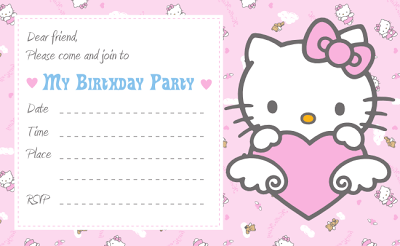Food activity worksheets are a fun and engaging way for children to learn about different foods, nutrition, and healthy eating habits. These worksheets turn learning into an interactive experience, helping kids explore food groups, identify ingredients, and even practice basic cooking concepts in a hands-on way. With colorful visuals, puzzles, and creative exercises, they make food education exciting while building important cognitive and fine motor skills.
Beyond education, food-themed worksheets can also enhance social interactions and playtime. They can be incorporated into playdates, classroom activities, or even themed parties, encouraging teamwork and conversation among children. Whether kids are solving food-related mazes, matching ingredients, or coloring their favorite meals, these activities create a lively and educational atmosphere where learning feels like play.
Benefits of Learning through Activity Worksheets
Activity worksheets are not just a tool to keep your children occupied, they actually come with a lot of hidden benefits that can boost children’s development. Here are several key benefits of learning about food through activity worksheets:
- Encourages Healthy Eating Habits: Food activity worksheets introduce children to different food groups, nutrients, and balanced meals in a fun way. By engaging with these activities, kids become more aware of what they eat and are more likely to make healthier food choices.
- Enhances Cognitive Skills: Worksheets that include puzzles, sorting games, and matching exercises help develop problem-solving and critical-thinking skills. They encourage children to make connections between different foods and their benefits, strengthening their memory and comprehension.
- Improves Fine Motor Skills: Coloring, tracing, and cutting activities in food worksheets help refine a child’s fine motor skills. These tasks strengthen hand-eye coordination, making it easier for kids to handle utensils, write, and perform other everyday tasks.
- Encourages Creativity and Imagination: Some food activity worksheets can include activities like drawing, designing meals, or creating food-related stories. These activities spark a child’s imagination and allow them to express their creativity while learning about different foods and cultures.
- Promotes Social Interaction: Food activity worksheets can be used in group settings, encouraging teamwork and communication. Activities like food bingo or recipe planning worksheets allow kids to collaborate, share ideas, and learn from one another.
- Makes Learning Fun and Engaging: Turning food education into a hands-on experience helps children stay engaged and excited about learning. Instead of just reading about food, they get to explore it in an interactive and enjoyable way, making the lessons more memorable.
Food Activity Worksheets for Children
There are so many different types of activity worksheets that you can find on the internet, and it is important to pick the ones that cater to your child’s age group. With the little ones, they can learn about food through simple yet beneficial activities like tracing and coloring. For your older children, you may want to give them more challenging activities like mirror drawing, word search or crosswords. Here are some great examples of food activity worksheets and where to get them.
Dot to Dot Activity
Dot to dot activity or tracing food-themed shapes is excellent for developing fine motor control and early writing skills. This activity is really great for younger children (3-4 years), tracing helps strengthen hand muscles needed for gripping pencils and using utensils. Try this food-themed dot to dot activity worksheet from Worksheets Pack. An activity like this improves shape and number recognition and boosts pre-writing abilities, making it easier for them to learn handwriting. Tracing also enhances focus, patience, and coordination, which are essential for overall cognitive and motor development.

Picture Quiz
Picture quizzes and matching food images to their names help young children develop word recognition, memory, and categorization skills. For toddlers and preschoolers (3-4 years), this activity builds early vocabulary as they learn to associate images with words. Older children (5-7 years) refine their reading skills and improve cognitive connections between written words and real-world objects. This activity also enhances visual discrimination and recall, making it a great way to introduce new foods and encourage language development in a fun and interactive way. Try this food picture quiz from Worksheets Pack, with the colorful illustrations, children are sure going to be excited to learn about different foods!

Mirror Drawing
Mirror drawing activities, where children complete one half of an image to create a symmetrical food item, help develop spatial awareness and fine motor skills. This activity strengthens hand-eye coordination as kids carefully trace and draw matching details. It also enhances early math concepts like symmetry and proportions while encouraging focus and patience. Younger children (4-5 years) benefit from the motor practice, while older kids (6-8 years) refine their precision and problem-solving skills as they analyze shapes and patterns. You can get food mirror drawing activity templates from Woo! Jr. Kids Activities, add an extra layer of fun by getting your kids to color and decorate their finished work.


Crossword
Crossword is a great activity for older children, you can challenge your children to complete this food crossword puzzle from Word Mint. Food-themed crossword puzzles are great for boosting vocabulary, spelling, and problem-solving skills. Younger children (6-7 years) benefit from simple word recognition and letter placement, while older kids (8-10 years) develop critical thinking as they decipher clues and recall food-related terms. This activity also strengthens reading comprehension and memory, helping children expand their knowledge of different foods, nutrition, and cultural dishes in a fun and engaging way.

Mixed Activities
There are also food activity worksheets that combine different activities into one worksheet, like this one from EZPZ Learn. This worksheet incorporates word search, maze puzzle and coloring into one activity worksheet, and it is sure going to be a lot of fun for your children. Activities like word search and maze puzzle help them to practice focus and attention to details, while coloring adds a layer of fun and creativity into the learning experience!

Incorporating Worksheets into Playdates and Parties
Absolutely! Incorporating food activity worksheets into playdates or parties makes learning fun and interactive. Completing worksheets can be added to balance out high energy activities at parties or playdates. Children also benefit a lot when they do activity worksheets in a group setting, here are some of them:
-
Encourages Social Interaction – Working on worksheets as a group promotes teamwork, communication, and sharing ideas, helping children build social skills.
-
Boosts Problem-Solving Skills – Collaborative activities like food-themed crosswords or quizzes encourage kids to think critically and help each other find answers.
-
Creates a Fun Learning Environment – Turning food education into a playful experience keeps children engaged and excited about learning while having fun with friends.
-
Enhances Creativity – Activities like designing meals or coloring food-themed worksheets allow children to express their creativity while learning about different foods.
-
Introduces Friendly Competition – Games like word searches or picture quizzes can add a fun challenge, motivating kids to participate while improving their cognitive skills.
Worksheet-Based Game Ideas
Here are three fun worksheet-based game ideas for kids’ playdates or parties:
1. Food Bingo: Create bingo cards with different food items instead of numbers and distribute them to the children. When the game begins, call out food names or show pictures, and kids mark them off on their cards. The first one to complete a row or full card wins a small prize! Playing food bingo is not only fun, but it also improves food recognition, listening skills, and social interaction.
2. Mystery Food Crossword Race: Give each child or team a food-themed crossword puzzle. Set a timer and see who can complete the most words correctly before time runs out. Offer hints or food-related riddles to help kids find the right answers. Games like this can help to enhance vocabulary, problem-solving, and teamwork skills.
3. Design Your Dream Meal Challenge: Provide a worksheet with blank plates and food categories (protein, veggies, dessert, etc.). Kids draw or cut and paste pictures of their ideal meal while making sure it’s balanced. Once they are done, get them to explain their meal choice to the group, and a fun discussion follows! An activity like this really encourages creativity, healthy eating awareness, and self-expression.
Free Invitation Templates
Yes! We are not here just to talk about food activity worksheets. If you are inviting others to a playdate or party where the children can do worksheets together, you will want to send an invitation that can set the right tone. Whether you are sending as a personal invitation or a social media post, we have some free invitation templates with fun and adorable food designs. Head to (FREE PRINTABLE) – Fruit Birthday Invitation Templates: Cheerful and Fun and 8+ Free BBQ Party For Invitation Templates to view some of the designs.


Once you’ve picked a template (or templates) of your liking, all you have to do is download and edit in the details to your food party! Don’t forget to mention how activity worksheets are going to be part of the party and how children can learn in a fun and engaging way.
Final Thoughts
Food activity worksheets are a fantastic way to make learning about food fun and engaging for children. They help kids develop important skills such as problem-solving, fine motor coordination, and vocabulary, all while exploring new foods in an interactive way. Whether used at home, in the classroom, or during playdates and parties, these worksheets turn education into an enjoyable experience that keeps children interested and curious.
Incorporating food-themed activities into group settings also fosters teamwork, communication, and creativity. Kids can work together, share ideas, and enjoy friendly challenges, making their learning experience even more memorable. With so many exciting food activity worksheet options available, teaching children about food can be both educational and entertaining, helping them build a lifelong appreciation for healthy eating and diverse cuisines.































